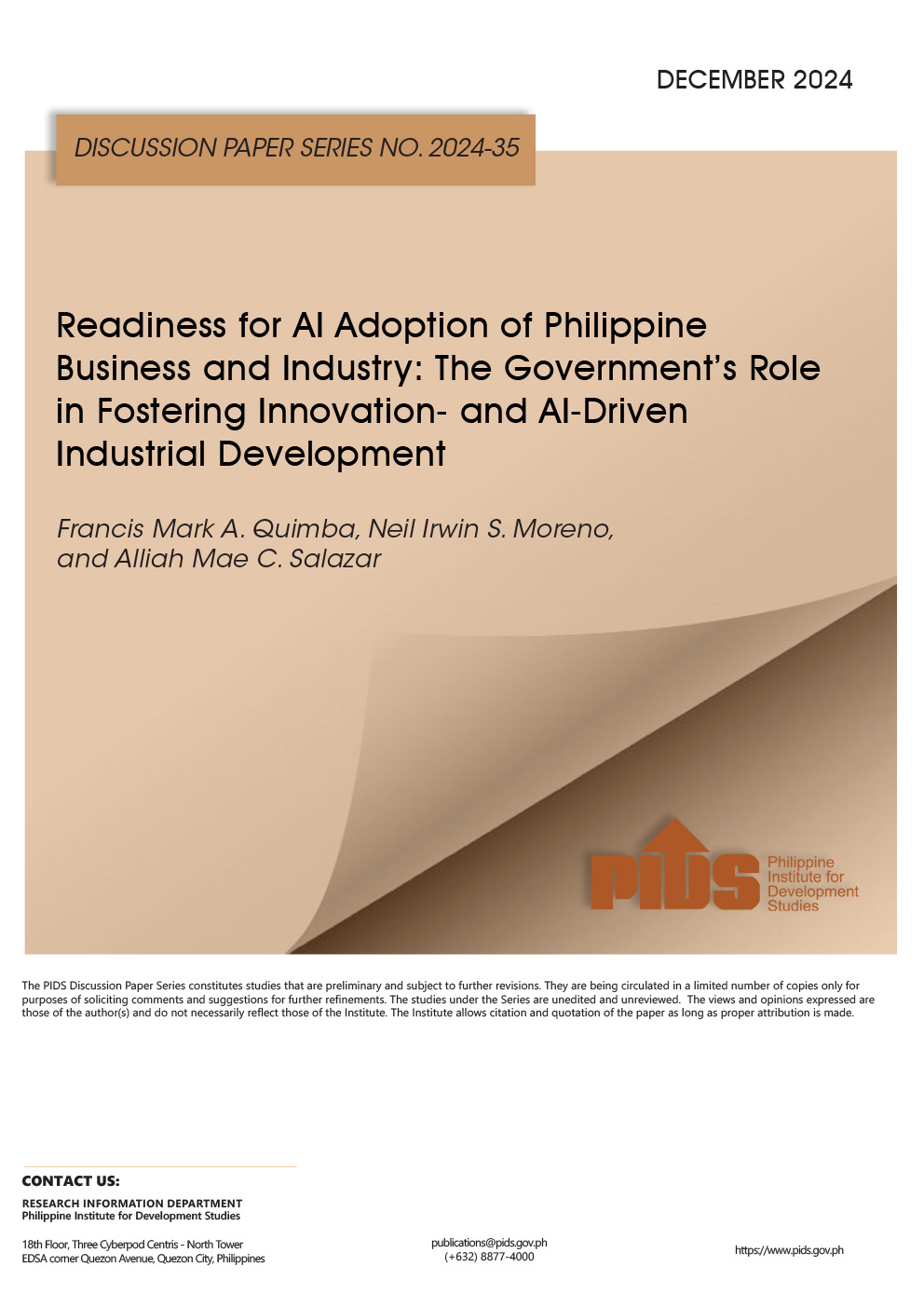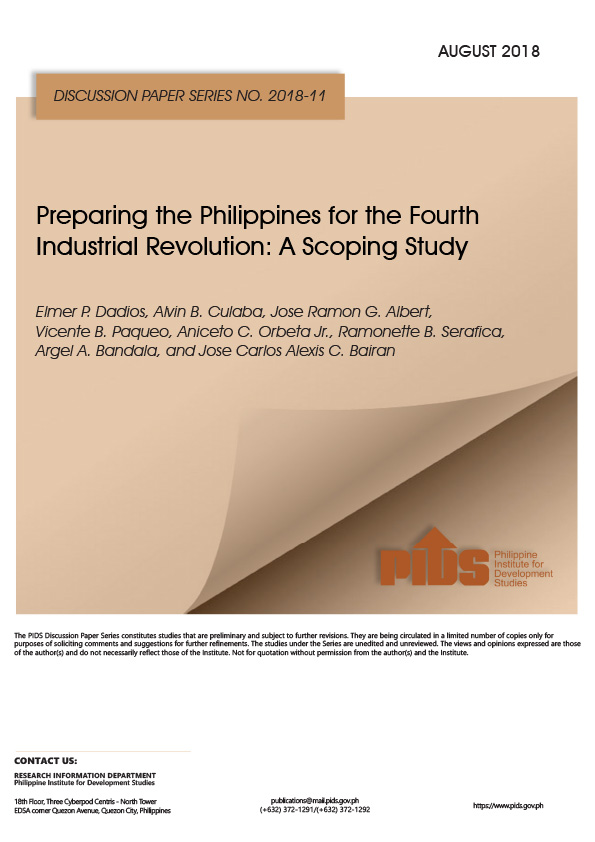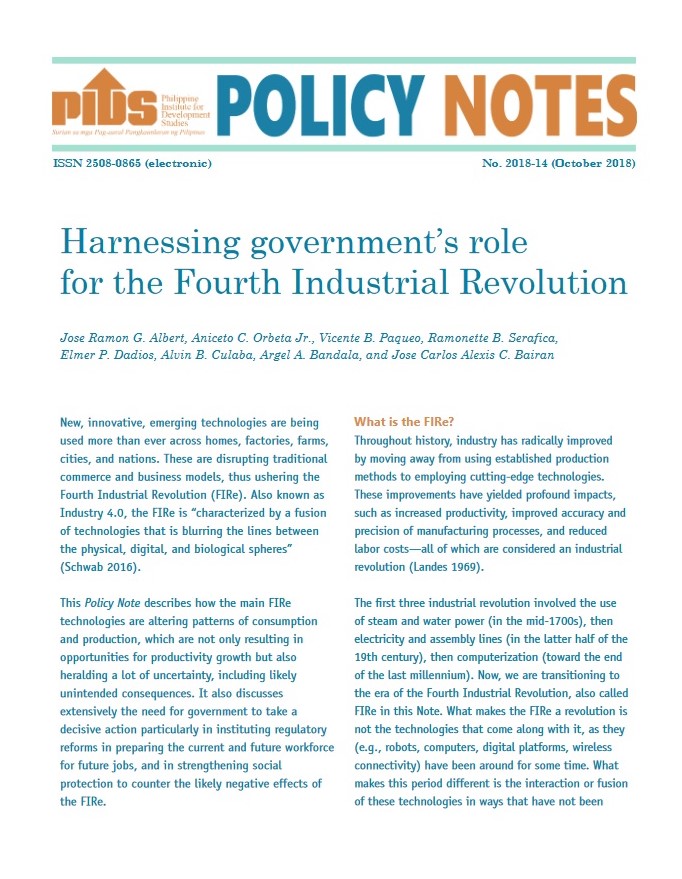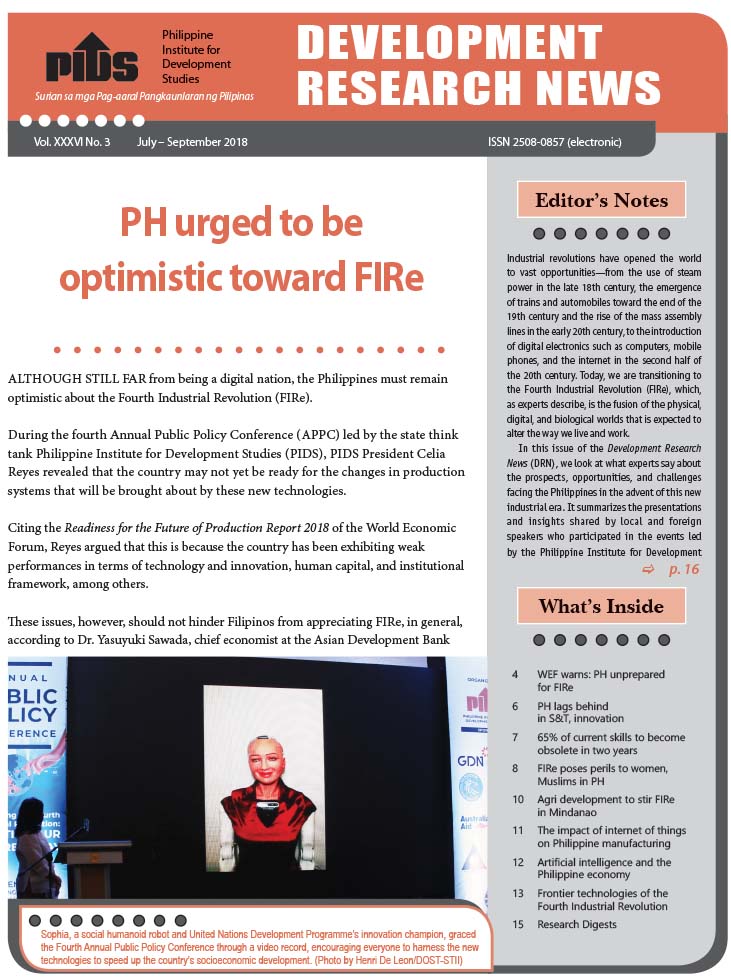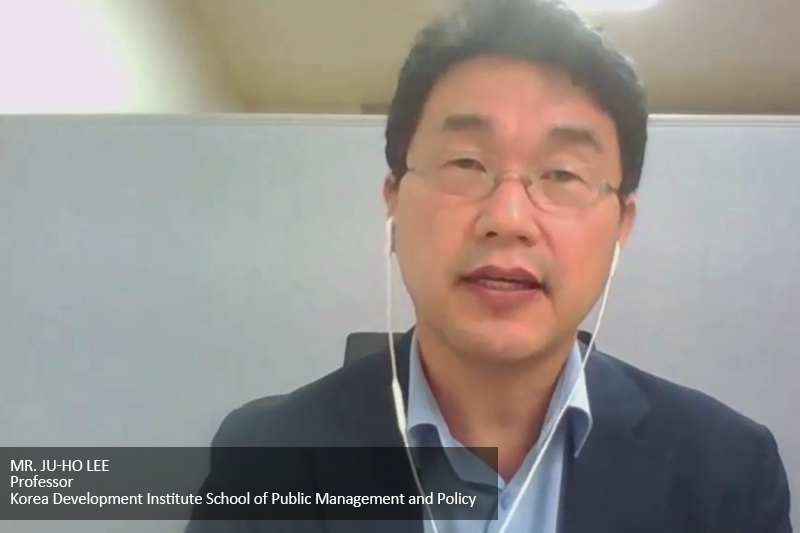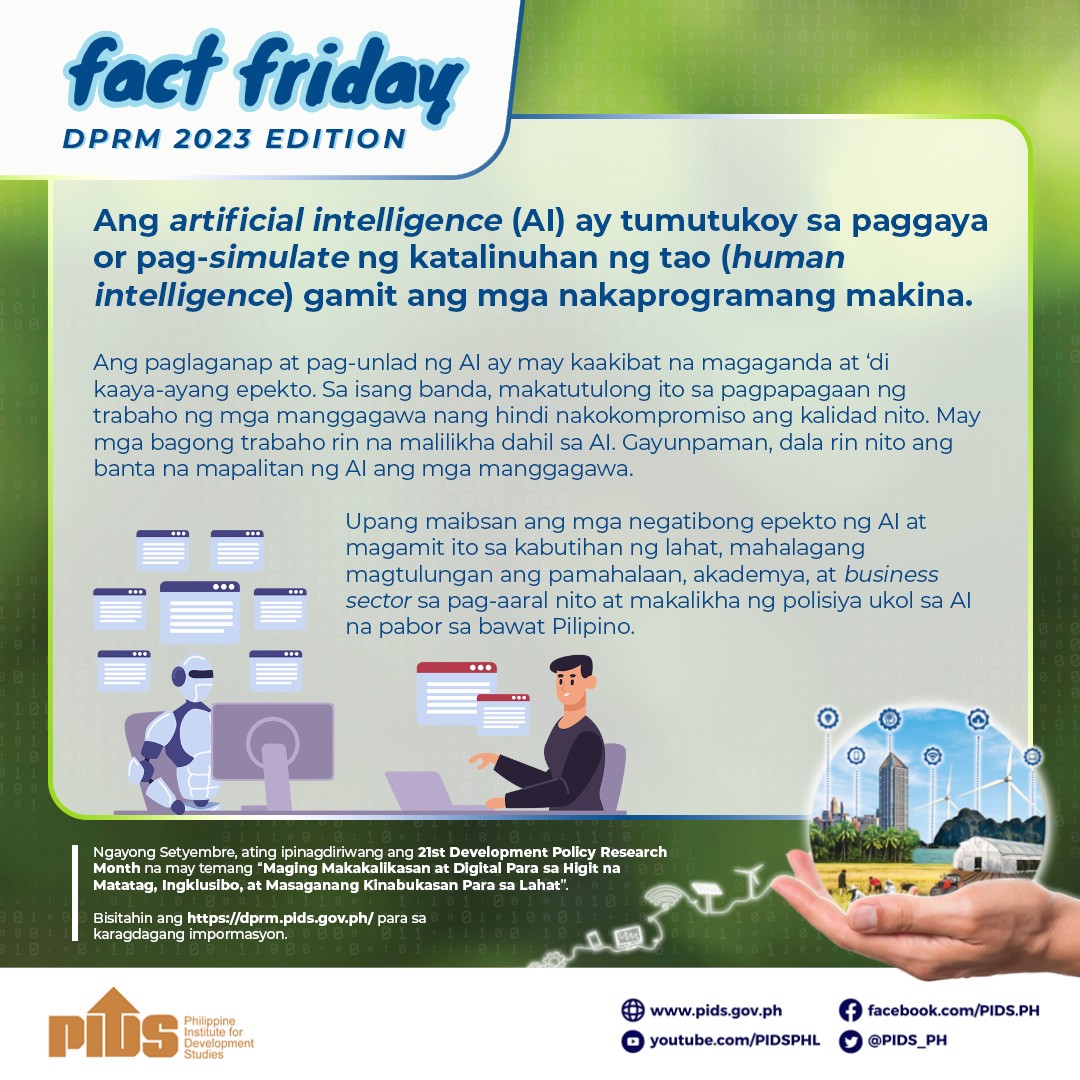This paper examines the current state of artificial intelligence (AI) adoption in Philippine businesses and industries, analyzing the barriers to adoption and evaluating the government's role in fostering AI-driven industrial development. Through an analysis of various AI readiness indices and case studies, the research finds that while basic digital infrastructure is widespread, with 90.8 percent of establishments having computers and 81 percent having internet access, advanced technology adoption remains limited. Only 14.9 percent of firms use AI technologies, with adoption concentrated in urban areas and larger firms, particularly in the ICT and BPO sectors. The study identifies key barriers including limited digital infrastructure, low awareness of AI technologies, significant skills gaps, and insufficient funding opportunities. Drawing from economic theory and international case studies, the paper outlines three critical domains for government intervention: market facilitation, capability building, and ecosystem coordination. The research proposes policy recommendations focusing on infrastructure development, human capital development, regulatory frameworks, public-private partnerships, and ethical guidelines. These recommendations emphasize the need for coordinated action across government agencies, substantial investment in digital infrastructure and education, and the establishment of clear governance frameworks to ensure responsible AI adoption while fostering innovation and competitiveness in the Philippine business sector.
Comments on this paper are welcome within 60 days from the date of posting. Email publications@pids.gov.ph.
Citations
This publication has been cited 2 times
- Maghirang, Tony. 2025. State of AI in the Philippines in 2025: A range of perspectives. Daily Tribune.
- Manila Bulletin. 2024. Digital divide, lack of awareness hinder AI integration in Philippine businesses. Manila Bulletin.

